Polk County pilot project could someday treat wastewater suitable for drinking
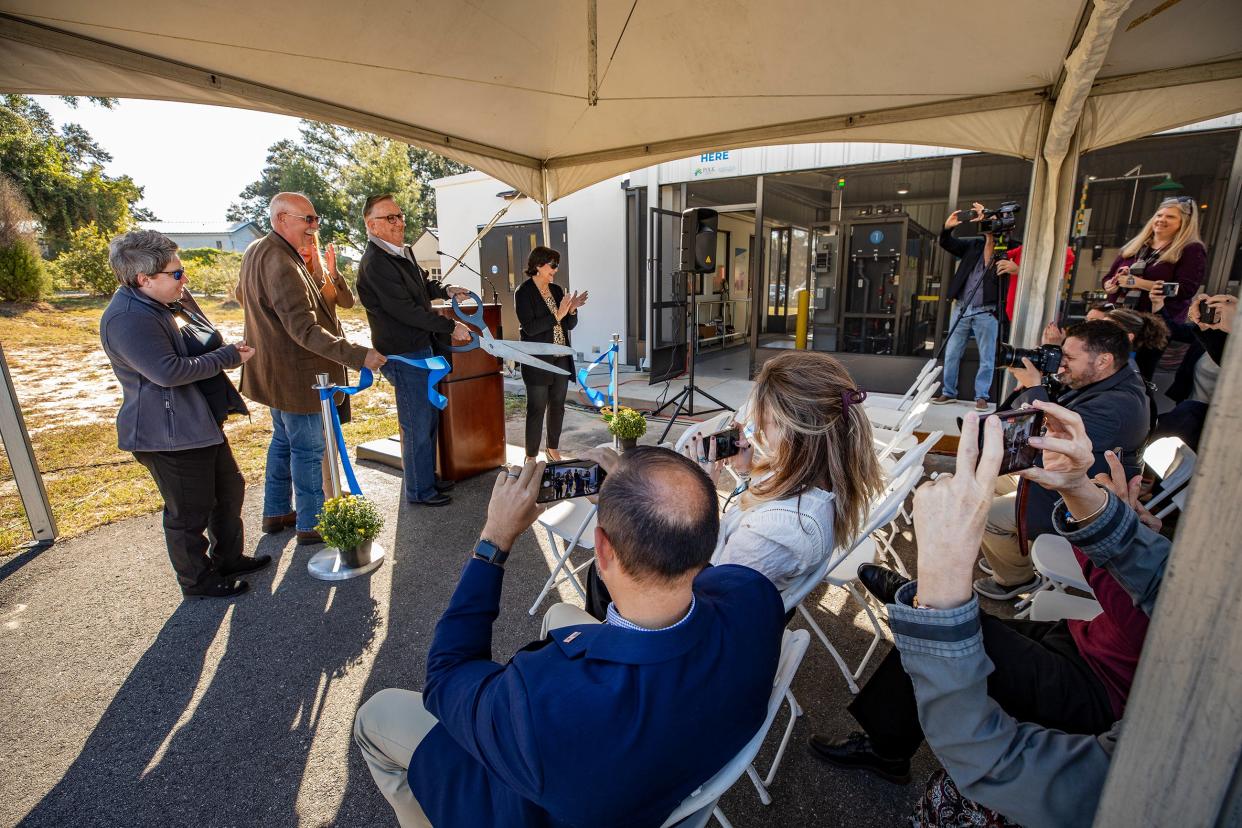
If treated space station wastewater is good enough for astronauts to drink, then someday Polk County residents might do the same as a way to supplement the region’s dwindling water supply.
Dignitaries assembled Thursday morning at the Cherry Hill Water Production Facility on Raulerson Road in North Lakeland for a ribbon cutting ceremony for a pilot potable water program. For now, the facility will return treated wastewater to the Kathleen area’s reclaimed water system for irrigation.
“This process is not unlike and similar to the system used in the country’s manned space program,” said Polk County Commission Chairman George Lindsey. “Just as there are limited water resources in space travel, there is also limited water sources here on Earth.”
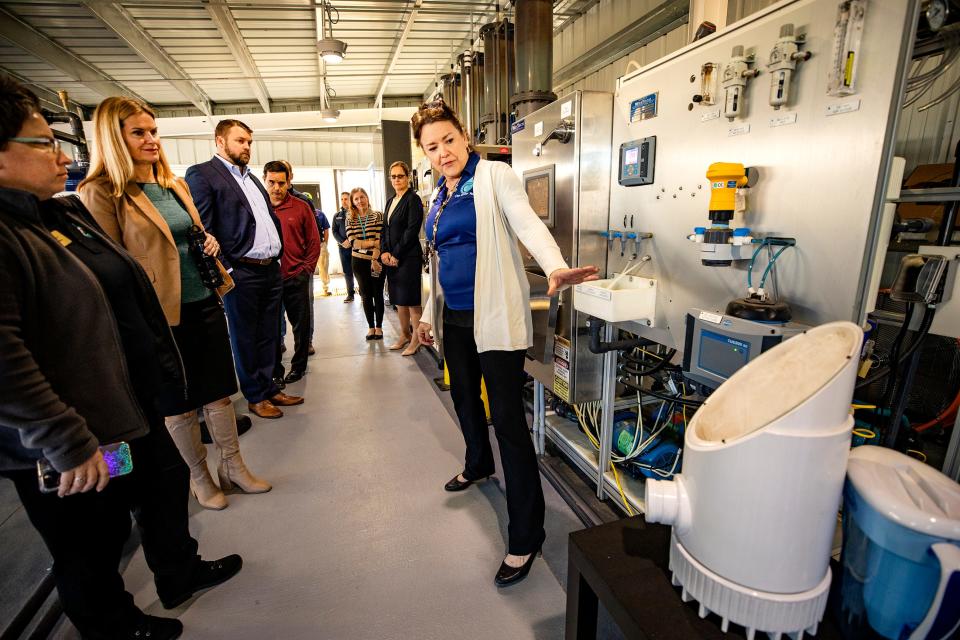
The Upper Floridan Aquifer cannot meet the needs of county and state population growth without harming the state’s lakes and streams, he said.
Polk is considered the fifth fastest growing county in the United States. With 1,000 people estimated to move each day to Florida, the state Department of Environmental Protection website One Water Florida said one billion gallons of water per day will be needed by 2024 to accommodate population growth.
The Polk Regional Water Cooperative is actively engaged in retrieving water from alternative sources, including the lower aquifer as well as storage and treatment of surface water runoff and water conservation efforts, Lindsey said.
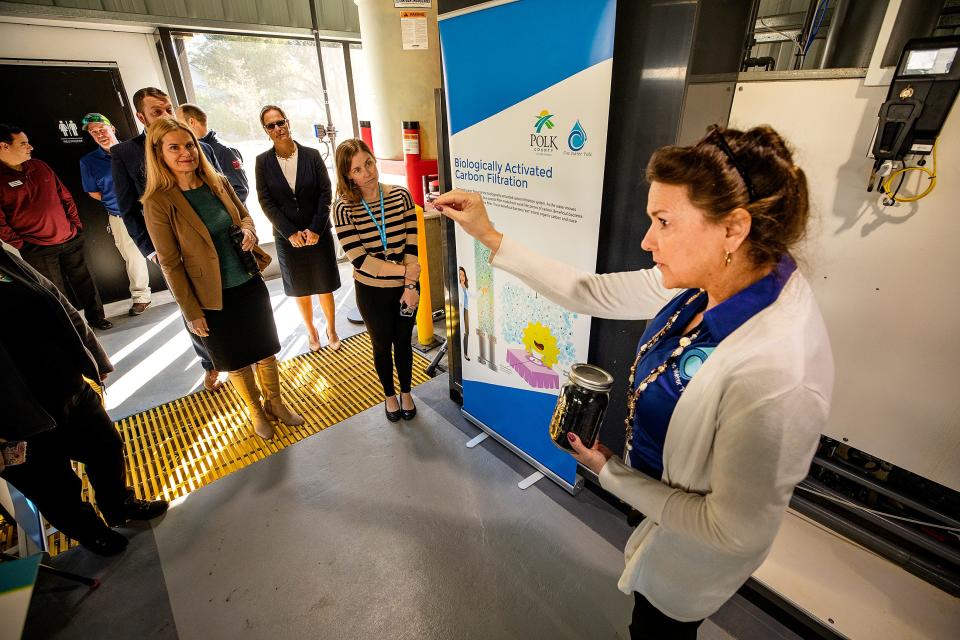
The pilot program is another potential “thinking outside the box” water source, he said
“What if we take wastewater we are already treating as lawn irrigation and treating it again, and again, and again to the most rigid regulatory standards, operated again by experienced, trained personnel and produce a product that meets or exceeds regulatory drinking water standards. On a tiny, tiny scale, that’s what is happening here at Cherry Hill.”
Six filtration processes
The $2.59 million facility, which can process 14,400 gallons of wastewater per day, is among four research projects in Polk County exploring what is termed “direct potable reuse.” Another is in Winter Haven, but no facility is part of that research. The pilot project is located at 3300 Raulerson Road in Lakeland, a largely rural area dotted with multiple subdivisions.
In all, the facility uses six wastewater treatment processes in a sequential order that can even remove PFAS, or "forever chemicals," pharmaceuticals and viruses common in the waste stream today as well as the typical contents of the sanitary sewer system.
Testing began at the site about two months ago following the completion of its construction. The Florida Department of Health in Polk County issued a written Notification of Approval of Proposed Pilot Test on Aug. 11, a county press release said.
No water from the pilot plant will be introduced into the public drinking water supply, a Polk County release said.
Eventually, the test results will be presented to county commissioners, said Jeff Foley, a Polk County public and media relations officer. "They will decide whether to move forward or not. If they opt to proceed, residents would begin utilizing DPR (Direct Potable Reuse) water for consumption no sooner than five years from now."
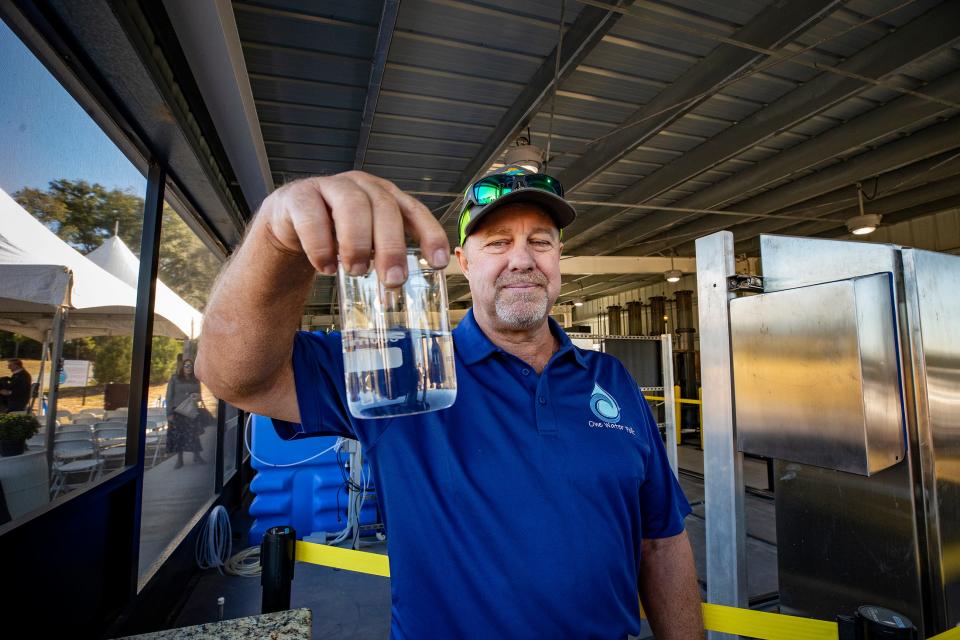
Some of the treatment processes are as simple as those used every day by people in their kitchens to further cleanse a pitcher of city tap water with a carbon filter. Others are more complex, employing the use of ozone and ultraviolet light as well as chlorine.
Polk County Utilities Director Tamara Richardson provided tours of the facility after Lindsey had given his prepared statement. She stopped at each machine involved in one of the six different processes to explain such technical terms as enhanced coagulation and sedimentation and granular activated carbon, among others.
Commissioner Martha Santiago, who represents the fastest-growing northeast area in Polk County, also attended the event as did representatives from state agencies such as the FDEP and Southwest Florida Water Management District.
From lawsuits to criminal charges: How a carport set a South Lakeland neighborhood at war
In a Polk County technical snapshot about the pilot facility, it said testing of the water will be ongoing for a year in three phases. The first four months will utilize all six treatment processes. The next four months will bypass the enhanced coagulation process, and the final stage will bypass the ultrafiltration process.
'Taking it to the next level'
Statewide there are as many as 11 pilot projects, according to Jay Hoecker, a bureau chief with the water resources division of the water management district, aslo known as Swiftmud.
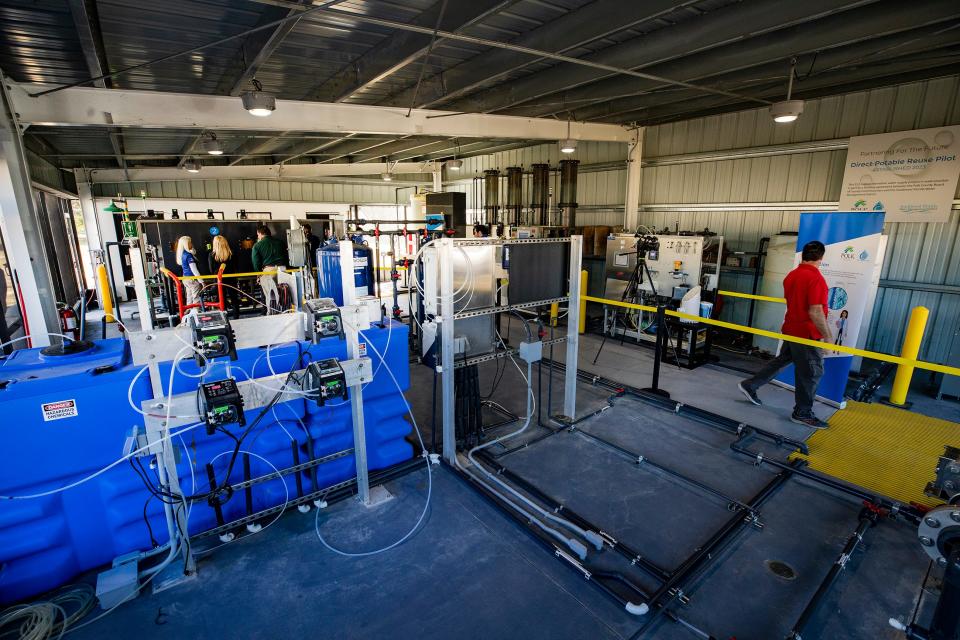
Plant City Utilities Director Lynn Spivey also attended. Her city is also a site for a pilot project, and Spivey was chairwoman for WateReuse Florida, a group involved in publishing the Framework for the Implementation of Potable Reuse in Florida.
The document was a result of Senate Bill 536 in 2020. Then-Sen. Wilton Simpson challenged FDEP, the Florida Department of Agriculture and Consumer Services, and the state’s five water districts to study alternative sources of water across Florida.
Of Polk’s pilot, Spivey said, “It’s taking it to the next level.”
She added, projects such as the Cherry Hill pilot are maximizing rate payers' dollars while addressing stricter state regulations limiting the field spraying of wastewater in Florida.
This article originally appeared on The Ledger: Polk christens pilot project to turn wastewater into drinking water

